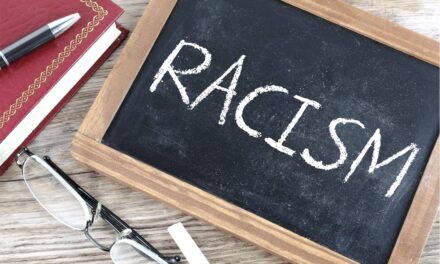Thousands of Americans are braving the Covid-19 risk, hoping to advance anti-racism. Do these protests disrupt public peace? Or do they expose the fake-peace of current realities?
It depends on what you define as peace. Is it the absence of violence, or the presence of justice? Contrasting the two can shed light on Black Lives Matter, and South African hopes for decolonisation.
Can you define peace as the absence of violence? Well, this overlooks the current reality that violence is not actually, completely absent. Only some types of violence are controlled: illegal violence and physical violence.
Okay, but that seems fine, right? Illegal violence is bad. Physical violence is bad. Well, here’s the issue: Police brutality can appear acceptable, as long as it looks legal. If police officers can make their actions appear legal, or prevent the public from looking too closely, they can justify violence. The problem is that if you have enough legal technicalities to justify police brutality, you have created loopholes. So, what is the connection with race? Well, police officers never actually need to say I thought he was a dangerous criminal because he is black – if they have enough legal technicalities to paint a veneer of legality over their actions, such as saying: he was resisting arrest.
Next, what about non-physical violence? What about symbolic violence? Consider the psychological burden of knowing that, if you are a Black American, you face far greater threats to your life than White Americans. Envisioning peace simply as the absence of violence overlooks types of violence that are less obvious – unless you are at the receiving end. The Black Lives Matter protests aim to expose this problem, because Black Americans face a battery of physical and symbolic violence, all of which are either technically legal, or illegal but overlooked (read about the dubious 50-A law).
From a different perspective, peace needs both an absence of violence, and the presence of justice. At this point, we reach a crossroads, where the concerns of Black Lives Matter intersect with the concerns of South Africans calling for decolonisation. Colonisation is over, right? South Africa avoided civil war in 1994, right? Well, that depends on your definition of peace. Sure, South Africa is not embroiled in a civil war. Good. But many forms of physical and symbolic (including economic, epistemic, and cultural) violence remain. Calling for justice and considering whether decolonisation will get us there, does not disrupt peace. It questions whether the peace we have is a real peace, whether it is sustainable, whether it is peace-with-justice. Precisely what that justice should look like in the South African context, deserves debate.
For a more detailed unpacking of peace-with-justice, I recommend:
You can read more articles from Marthinus here










